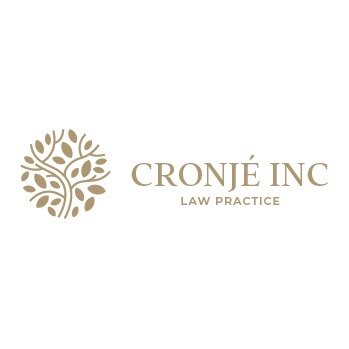Best Trusts Lawyers in Namibia
Share your needs with us, get contacted by law firms.
Free. Takes 2 min.
Or refine your search by selecting a city:
List of the best lawyers in Namibia
About Trusts Law in Namibia:
Trusts in Namibia are legal entities created to hold assets for the benefit of one or more beneficiaries. A trust is established by a founder who transfers assets to a trustee, who then manages those assets for the benefit of the beneficiaries. Trusts are commonly used for estate planning, asset protection, and charitable purposes.
Why You May Need a Lawyer:
There are several situations where you may require legal assistance with trusts in Namibia. These include setting up a trust, managing trust assets, resolving disputes among beneficiaries, and ensuring that the trust complies with local laws and regulations. A lawyer can provide guidance and expertise to help you navigate the complexities of trust law in Namibia.
Local Laws Overview:
In Namibia, trusts are governed by the Trusts Act of 1988. This legislation sets out the rules and regulations that govern the creation, administration, and termination of trusts in the country. The Act ensures that trusts are managed in the best interests of the beneficiaries and that trustees fulfill their duties responsibly.
Frequently Asked Questions:
1. What is a trust deed?
A trust deed is a legal document that outlines the terms and conditions of the trust, including the identity of the founder, the trustee, and the beneficiaries, as well as the assets held in the trust, and how those assets are to be managed and distributed.
2. How do I choose a trustee for my trust?
When choosing a trustee for your trust, it is important to select someone who is trustworthy, reliable, and capable of managing trust assets. It is also advisable to choose someone who has experience in trust administration and is familiar with Namibian trust laws.
3. Can I change the terms of my trust?
Depending on the provisions of the trust deed and the Trusts Act of 1988, it may be possible to change the terms of your trust. However, any changes must be made in accordance with the law and with the consent of all relevant parties, including the founder, trustee, and beneficiaries.
4. What are the tax implications of setting up a trust in Namibia?
There are tax implications associated with setting up a trust in Namibia, including income tax, capital gains tax, and estate duty. It is advisable to consult a tax advisor or lawyer to understand the tax consequences of establishing a trust and to ensure compliance with local tax laws.
5. What are the duties of a trustee in Namibia?
Trustees in Namibia have a fiduciary duty to act in the best interests of the beneficiaries and to manage trust assets prudently and responsibly. The Trusts Act of 1988 sets out the specific duties and responsibilities of trustees, including the duty to act honestly, impartially, and with due diligence.
6. How do I terminate a trust in Namibia?
Trusts can be terminated in Namibia in various ways, including by the fulfillment of the trust's purpose, by agreement of all relevant parties, or by court order. It is recommended to seek legal advice before taking any steps to terminate a trust to ensure that the process is carried out correctly and in accordance with the law.
7. Can a trust be challenged in court in Namibia?
Trusts can be challenged in court in Namibia if there are suspicions of fraud, misconduct, or breach of trust on the part of the trustee. Beneficiaries or other interested parties may bring a court action to challenge the validity or administration of a trust, and the court will make a determination based on the evidence presented.
8. What are the benefits of setting up a charitable trust in Namibia?
Setting up a charitable trust in Namibia can provide tax benefits, asset protection, and a means of supporting charitable causes and organizations. Charitable trusts are a popular choice for individuals who wish to leave a lasting legacy and give back to their community.
9. How can I protect assets through a trust in Namibia?
Assets can be protected through a trust in Namibia by transferring ownership of the assets to the trust, where they are held separately from personal or business assets. This can provide protection against creditors, lawsuits, and other risks, as the assets are no longer owned by the individual but by the trust itself.
10. How do I choose the right type of trust for my needs in Namibia?
The right type of trust for your needs in Namibia will depend on your specific goals, circumstances, and preferences. Common types of trusts include revocable trusts, irrevocable trusts, living trusts, and testamentary trusts. It is recommended to consult a lawyer to determine the most suitable trust structure for your individual situation.
Additional Resources:
For more information and assistance with trusts in Namibia, you can contact the Master of the High Court, the Law Society of Namibia, or a reputable law firm specializing in trust law. These resources can provide guidance, support, and legal advice to help you navigate the complexities of trusts in Namibia.
Next Steps:
If you require legal assistance with trusts in Namibia, it is advisable to consult a qualified trust lawyer who can provide personalized advice and guidance tailored to your specific needs. A lawyer can help you understand your rights and obligations under Namibian trust law, navigate complex legal processes, and ensure that your trust is managed effectively and in compliance with the law.
Lawzana helps you find the best lawyers and law firms in Namibia through a curated and pre-screened list of qualified legal professionals. Our platform offers rankings and detailed profiles of attorneys and law firms, allowing you to compare based on practice areas, including Trusts, experience, and client feedback.
Each profile includes a description of the firm's areas of practice, client reviews, team members and partners, year of establishment, spoken languages, office locations, contact information, social media presence, and any published articles or resources. Most firms on our platform speak English and are experienced in both local and international legal matters.
Get a quote from top-rated law firms in Namibia — quickly, securely, and without unnecessary hassle.
Disclaimer:
The information provided on this page is for general informational purposes only and does not constitute legal advice. While we strive to ensure the accuracy and relevance of the content, legal information may change over time, and interpretations of the law can vary. You should always consult with a qualified legal professional for advice specific to your situation.
We disclaim all liability for actions taken or not taken based on the content of this page. If you believe any information is incorrect or outdated, please contact us, and we will review and update it where appropriate.
Browse trusts law firms by city in Namibia
Refine your search by selecting a city.













